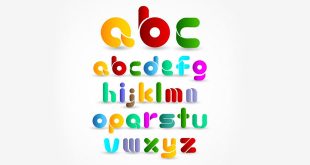Examples Of Epithet
Epithet In Sentences
- Sitting by his side, I watched the peaceful dawn.
- My careful steps reached the attic.
- Her stifled laughter made everybody nervous.
- In the face of such a tragedy, his laughing happiness seemed queer.
- I had reached a delicate corner.
- The idle road stretched for miles.
- All I can say is that he had an honest end.
- It was a sweet beginning to a tragic end.
- Her depressing ways ruined her mother’s health.
Epithet In Literature
- “I’ve come, As you surmise, with comrades on a ship, Sailing across the wine-dark sea to men Whose style of speech is very different…” – The Odyssey by Homer
- “God! he said quietly. Isn’t the sea what Algy calls it: a great sweet mother? The snot-green sea. The scrotum-tightening sea. Epi oinopa ponton. Ah, Dedalus, the Greeks! I must teach you. You must read them in the original. Thalatta! Thalatta! She is our great sweet mother. Come and look.” – In ‘Ulysses’ by James Joyce
- “The earth is crying-sweet, And scattering-bright the air, Eddying, dizzying, closing round, With soft and drunken laughter…” – In ‘Beauty and Beauty’ by Rupert Brooke
- “My restless blood now lies a-quiver, Knowing that always, exquisitely, This April twilight on the river Stirs anguish in the heart of me.” – In Blue Evening by Rupert Brooke
- “Blind mouths! that scarce themselves know how to hold A sheep-hook, or have learn’d aught else the least That to the faithful herdman’s art belongs!” – In Lycidas by John Milton
- “Here of a Sunday morning My love and I would lie, And see the coloured counties, And hear the larks so high About us in the sky.” – In ‘Bredon Hill’ by A.E. Housman
Shakespearean Epithets
- Thou mad mustachio purple-hued maltworms!
- Thou puking knotty-pated lout!
- Thou beslubbering swag-bellied ratsbane!
- Thou roguish tickle-brained fustilarian!
Derogatory Epithets
- You sniveling son of a wallowing wart hog.
- You snot-faced, low life, double-dealing, lying lump of cow manure.
- You two-faced, two-timing satchel-butted lazy lying twerp.
- You pusillanimous lily-livered yellow dog coward.
Common Homeric Epithets
Epithets For Men And Women In Homer
- Swift-footed, godlike, shepherd of the people, son of Peleus, and leader of men for Achilles.
- Wide-ruling, lord of men, godlike, and glorious son of Atreus for Agamemnon.
- Proud, royal son of Telamon, huge, glorious, and loved of Zeus for Aias.
- Leader of the Trojans, lord of men, great-hearted, son of Anchises, and counselor of the Trojans for Aineias.
- Daughter of great-hearted Eetion white-armed for Andromache.
- Priam’s son, and godlike for Alexandros / Paris.
- Nestor’s splendid son for Antilochus.
- Lovely-haired for Ariadne.
- Godlike great hearted, Tydeus’ son, great spearman, strong, the horse-tamer, master of the war cry for Diomedes.
- Tamer of horses, huge, shepherd of the people, Priam’s son of the glinting helmet, and glorious for Hector.
- Long-dressed, lovely-haired, Argive, daughter of a noble house, and daughter of Zeus who holds the aegis for Helen.
- Renowned for Idomeneus.
- Horse-breaker for Kastor.
- Master of the war-cry, glorious, excellent, fair-haired, warrior, red-haired, and son of Atreus for Menelaus.
- Godlike, Gerenian horseman, huge, and son of Neleus Pylos-born King sweet spoken for Nestor.
- Zeus’ equal in his mind’s resource, son of Laertes, resourceful, nimble-witted, famous spearman, godlike, sacker of cities, much-enduring, gallant, stalwart, loved of Zeus, famed, hardy, royal, and great glory of the Achaians for Odysseus.
- Lykaeon’s splendid son for Pandaros.
- Brave son of Menoitius, horseman, great-hearted, hero, poor, his kindness, and gentle for Patroklos.
- Wise, queen, flawless, richly-dowered, prudent, Ikarius’ daughter, and constant for Penelope.
- Boxer for Polydeukes.
- Leader of the Lycians, lord, and godlike for Sarpedon.
- Loose-tongued for Thersites.
- Theban, and Prince for Teiresias.
Epithets For Gods And Goddesses
- Lord of the dead, and mighty for Aidoneus.
- Smiling goddess, Kypris, golden, and daughter of Zeus for Aphrodite.
- Son of Zeus, loved of Zeus, god of the silver bow, the unshorn, rouser of armies, and the lord who shoots from afar for Apollo.
- Curse of men, brazen, monstrous, sacker of cities, of the glinting helmet, and raging for Ares.
- The archer-goddess and of the golden distaff for Artemis.
- The bright-eyed, Atrytone, daughter of Zeus who holds the aegis, and Tritogeneia for Athene.
- Tender, fresh, rosy-fingered, in her yellow robe, and early-born for Dawn.
- The famous craftsman, great, and the famous lame god for Hephaistos.
- Ox-eyed queen, white-armed, of the golden throne queenly goddess, daughter of the great Kronos, and of Argos for Hera.
- Messenger, son of Zeus, Giant-killer, kindly, greatest of gods in his mind’s subtlety, and the strong one for Hermes.
- Swift-footed, storm-swift, and swift for Iris.
- Daughter of Zeus, dread, and August for Persephone.
- Earth-shaker, dark-haired god powerful lord, and encircler of the earth for Poseidon.
- Lovely-haired, and silver-footed for Thetis.
- Son of Kronos, wide-seeing, the father, the cloud-gatherer, who holds the aegis, father of gods and men, master of the bright lightening, and the father of men and gods for Zeus.
Epic poems most notably that of Homer, depended a lot on epithets to bring out certain characteristics in people, places and things. Even now, it is more suitable to use epithets in poems to convey vivid imagery in fewer words.
 Class Notes NCERT Solutions for CBSE Students
Class Notes NCERT Solutions for CBSE Students


